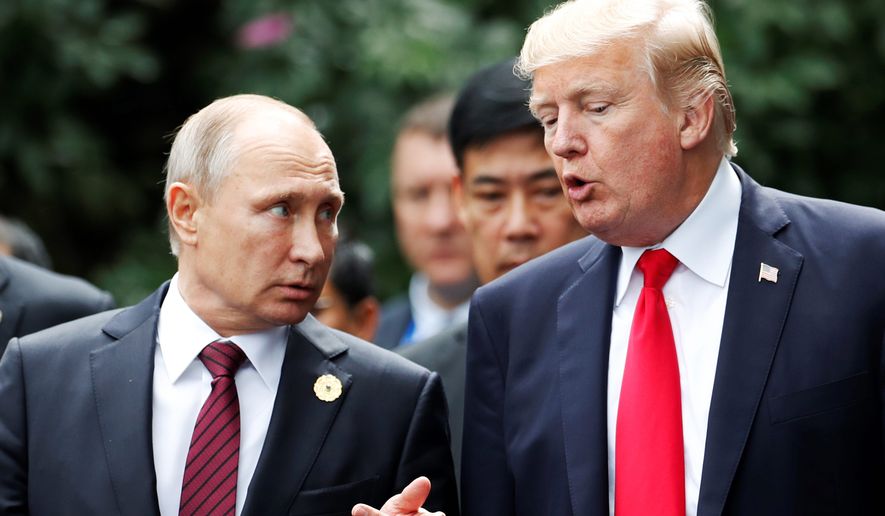Sparking an angry reaction halfway around the world, the D.C. Council voted to rename the street outside the Russian Embassy after a leading rival to President Vladimir Putin who was assassinated near the Kremlin in 2015.
A portion of Wisconsin Avenue in front of the Russian Embassy will now be known as “Boris Nemtsov Plaza,” according to the D.C. Council.
While the practice of finding provocative street addresses for hostile embassies is not new, the proposal drew a swift and angry response from some prominent Russian lawmakers.
Vladimir Zhirinovsky, a well-known right-wing populist and past presidential candidate, condemned the move Wednesday as “dirty tricks in front of the Russian Embassy,” according to Russia’s Interfax news agency.
According to the Moscow Times, another Duma deputy suggested that the address of the U.S. Embassy in Moscow should be renamed as “Severoamerikansky Tupik, 1,” — “North American Dead End, 1.”
The D.C. Council approved the change on a unanimous vote Tuesday to honor Mr. Nemtsov, a noted democracy activist once considered the most effective challenger to the authoritarian Mr. Putin.
The renaming of a small stretch of Wisconsin Avenue in Northwest Washington to “Boris Nemtsov Plaza” will occur on Feb. 27, the third anniversary of the politician’s death, Mr. Nemtsov’s close associate Vladimir Kara-Murza wrote in a Facebook post.
Under President Boris Yeltsin in the 1990s, Mr. Nemtsov enjoyed a successful political career. But he emerged as a particularly vocal critic of Mr. Putin as the former KGB agent has gradually consolidated power after coming to office in 2000.
In Moscow in February 2015, Mr. Nemtsov was shot in the back four times while walking home after dining in a restaurant, in a brazen attack that sparked international outrage.
His death shocked opposition politicians across Russia and a small memorial near where he was killed has frequently been vandalized at night.
In early December, Mr. Nemtsov’s daughter Zhanna traveled to Washington and appeared before the city council to advocate for the name change.
“The current Russian political regime wants to eradicate the memory of my father, since it believes — correctly — that symbols are important and that they can potentially facilitate and inspire change,” she told the council last month.
Last year, five Chechen men were convicted of Mr. Nemtsov’s killing. But his family and supporters insist that the person who ordered the assassination has yet to be brought to justice.
Mary Cheh, who represents Ward 3 on the council and co-sponsored the name change measure, told Radio Free Europe in an interview that “there is little doubt that [Mr. Nemtsov’s] murder was motivated by his political beliefs, his popularity, and his frequent and open criticism of the Russian government.”
She added that no one in Washington would be able to remove the new signs that would soon memorialize Mr. Nemtsov.
Sen. Marco Rubio, Florida Republican, initially sponsored a bill to authorize the name change in Congress, which has oversight of the capital city.
When the bill stalled, he reached out to the D.C. Council, which took up the cause. The House Homeland Security Committee still must sign off on the change.
Dmitry Peskov, the Kremlin’s main spokesman, shrugged of the move, telling the TASS news service that this was “a prerogative of the city authorities” to decide on street names.
But this move, he observed, is moving ahead at a time when “bilateral relations between the two countries still leave much to be desired, mildly speaking.”
• Dan Boylan can be reached at dboylan@washingtontimes.com.




Please read our comment policy before commenting.